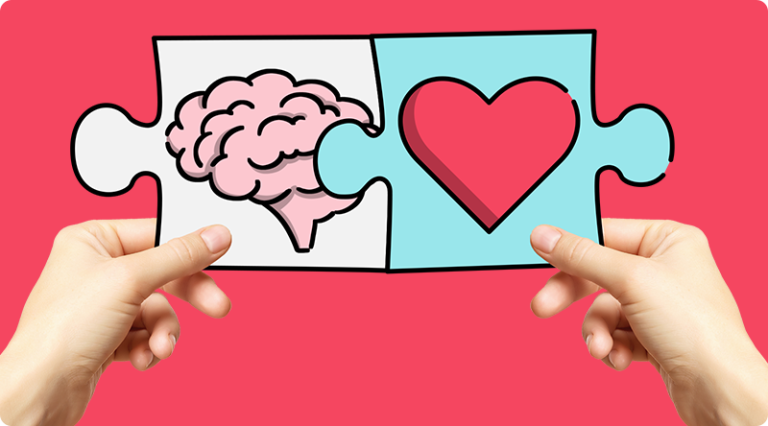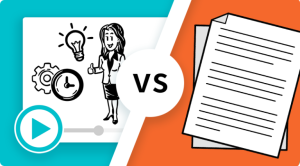How emotional intelligence helps us to communicate more effectively
Written by Maren Dinges | 19th June 2024

Emotionally intelligent individuals have the ability to understand and categorize their own emotions as well as the emotions of others. Emotions play a significant role in every conversation, yet they are not always apparent. Emotionally intelligent people are adept at identifying and acknowledging these underlying emotions. Research indicates that they can develop and sustain strong, long-term relationships because they are attuned to the emotional aspects of communication.
Emotional intelligence is now widely recognized as a crucial skill in the workplace. While software and artificial intelligence are increasingly handling operational communication tasks, humans still possess superior emotional capabilities. According to a Capgemini study, 74% of surveyed managers agree that emotional intelligence is one of the key skills for the future, if not the most important.
This article delves into the topic of emotional intelligence, its role in effective communication, and strategies for developing this skill.

Who is emotionally intelligent?
If you describe a person as empathetic and self-reflective, that person is most likely emotionally intelligent. They are empathetic because they understand and share the feelings of others, and they are self-reflective because they are aware of and analyze their own emotions.
Emotionally intelligent people are able to interpret both their own feelings, and the feelings of others, and then take one step further to understand them in context. They are unlikely to lose control and express extreme emotions in public, as they are skilled at managing their impulses and have strong social skills.

How is social competence demonstrated?
Social skills are divided into those that are internal and those that are visible to the outside world.
Internal social skills are divided into two categories:
- Self-confidence: Knowing and appreciating your strengths and weaknesses
- Self-management: Controlling spontaneous impulses
As people come to terms with their emotional world, they become more reflective and empathetic to the emotions of others. This is the basis for recognizing emotional intelligence. Social competence is evident in all their actions, not just in direct conversation. This is because emotionally intelligent people use both rational and emotional facts to evaluate and respond to a situation.
By balancing facts and intuition, they appear authentic. They are also extremely adaptable because they directly perceive moods as signals and change their communication accordingly. This ability ensures that emotionally intelligent people are persuasive in their communication. Emotionally intelligent people can greatly influence others because they know how to speak to their specific emotional triggers. This shows they really understand what others are feeling and need.
Emotional intelligence will help you:
- Be open to opposing points of view
- Resolve conflicts on an equal footing
- Communicate more authentically
- Build stronger relationships
- Stay curious about other opinions
- Recognize moods in a room
- Interpret signals on an emotional level
- Trust your intuition in situations
The good news is that emotional intelligence is partly inherited from childhood, but it can also be learned. For example, you can use videos that clearly show you in which situations a person communicates rationally and in which situations emotionally. With simpleshow video maker, you can create such videos.

Four ways emotional intelligence improves your communication
Individuals with high emotional intelligence are often known for their exceptional listening skills and their ability to deliver compelling speeches. These two forms of communication, although distinct, share a common foundation. Active listening involves engaging in attentive and responsive communication, while passive listening entails simply receiving information without contributing to the conversation. Emotionally intelligent individuals are skilled at both methods, demonstrating their ability to pay attention and engage with others effectively.
Here are four ways you can use emotional intelligence to improve your communication skills and develop them at the same time:
Practice self-reflection
The first step is to understand yourself. If you don’t understand your own feelings, you won’t be able to understand the feelings of others. Emotional intelligence starts with self-awareness. Begin by reflecting on how you feel and respond in different situations. For instance, a manager could think about how they feel when an employee resigns. This self-reflection provides insight into their reactions. By examining their own emotions, they can change their responses and create some distance. This is the best way to avoid taking something like a resignation personally.
Change your perspective regularly
Once you have explored your own feelings, you can start considering the feelings of others. Put yourself in the shoes of the person who is quitting. How do they feel? Are they worried about your reaction? Are they frustrated with their working conditions? Or are they simply excited about a new opportunity in their lives?
Emotionally intelligent people make these perspective shifts in every situation until they develop empathy to automatically understand the other person’s point of view. Shifting perspectives is important in communication because it allows us to communicate on an equal level. This makes it possible to find common solutions and reach compromises.
Resolve emerging conflicts proactively
Understanding how emotional intelligence helps with conflict resolution involves recognizing that conflicts arise when two different opinions oppose each other and neither side is willing to budge. Emotional intelligence provides the resilience and calmness needed to resolve conflicts with a willingness to compromise. However, in a business context, compromise is not always possible.
Resolving the conflict involves defending your point of view while showing the other person that their opinion is important and valued. Additionally, it entails making a promise to support the other person’s opinion on future issues and potentially promoting it at some point.
Say yes to spontaneous actions
One of the most significant benefits of emotional intelligence is the adaptability that comes from it. You develop this by consistently saying yes to spontaneous actions, even when they are entirely out of character. Over time, you become more spontaneous yourself because your mind becomes more adaptable. As a result, you transition from a fixed mindset to a growth mindset. In other words, you gain the ability to evolve.
This form of emotional intelligence helps you in every situation in life: with structural changes at work, spontaneous visits from in-laws, and drastic life events.
Conclusion: How to communicate emotionally intelligent
Incorporating emotional intelligence into corporate communication can be challenging, especially in hybrid and home office work environments where interpersonal communication is difficult. Videos can help bridge this gap by conveying messages with powerful emotions that words alone cannot evoke. For example, a single video can show a situation from multiple perspectives, making each target group feel addressed.
In short, videos contain the elements of emotionally intelligent communication: they display various perspectives, arouse curiosity, and reflect moods, signals, and emotions. The characters in the video make it even more empathetic. This allows you to explain any changes or situations in the company in an intelligent and emotional way. With the simpleshow video maker, you can create such a video quickly. Try it yourself and bring more emotional intelligence into your work environment!


